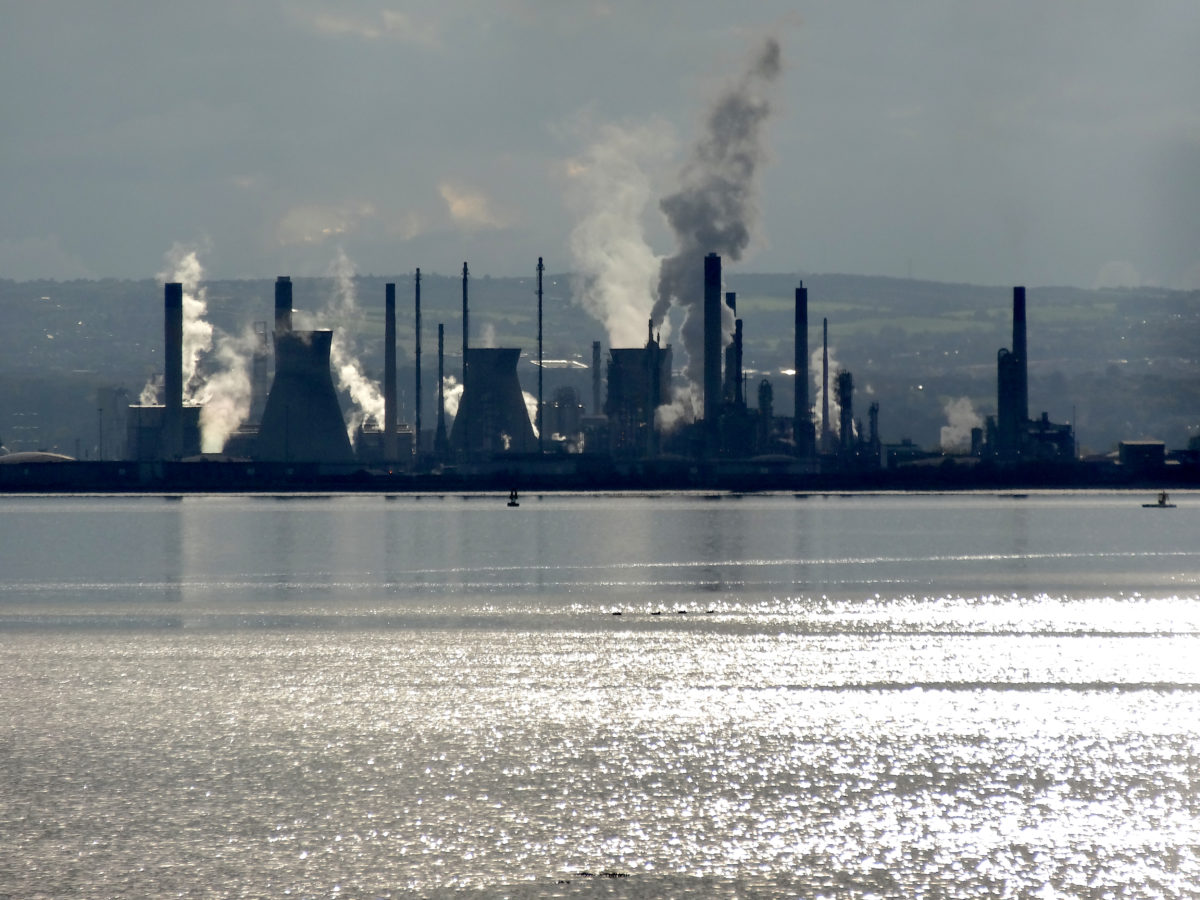
A just transition to low carbon can drive economic transformation
In Scotland and throughout the world, the concept of a ‘just transition’ is helping to drive progress towards a zero-carbon future. It is also enabling transformations of thinking about how market economies are managed. The imperative of limiting climate change requires a much greater role for government in the direction of economic development, shifting from reliance on market-based economic management and leading towards a greater role for public ownership and community enterprise.
Since the Paris Agreement the necessity of determined action to limit greenhouse gas emissions is almost universally accepted. The need for moving rapidly to elimination of use of fossil fuels is a logical consequence which is slowly being integrated into long-term thinking. What is contested is how this will come about and whether the mechanisms in the Paris Agreement are adequate. It is certain, however, that the pace of change needed for its objectives (1.5/2°C) is extremely rapid.
Framing the issue
How can this radical transformation be made to happen? In Scotland the concept of a Just Transition is framing the issues in a positive way and focusing attention on what needs to be done, how it will be done and the wider consequences of those choices.
Scotland shares with other rich nations all the challenges of decarbonisation of energy use and consumption. In addition Scotland is a producer of fossil fuels and has to face up to the consequences of decarbonisation for its oil and gas industry, which still provides work for over 100,000 people, directly and indirectly. Having abundant sources of renewable energy as well as oil, the idea of transition from the production and consumption of fossil fuels to renewables is easily grasped.
The loss of approximately 65,000 jobs as the oil price fell in 2015/16 was the immediate spur for the establishment of a partnership for just transition by Friends of the Earth Scotland (FOES) and the Scottish Trade Union Congress (STUC), combined with the signals given by the Paris Agreement about the future of fossil fuels. The danger of economic disaster for oil and gas workers, and the communities depending on their income, were clear in the minds of trades unionists with memories of the closure of the coalmining industry – a classically un-just transition, even if the geographical areas concerned were different.
Working in partnership
The focus of the Just Transition Partnership, set up by STUC and FOES, is on industrial policy, as the urgent need to respond to climate change and mitigation targets are taken as given. The key reason for this is awareness that Scotland had not reaped the full economic benefits of the significant shift to electricity generation from renewables over the previous 20 years. Under the UK’s model of energy policy and economic development, manufacturing jobs grew in other countries where the turbines were made and operating profits accrued to multinational energy companies who dominate the electricity markets. Further, it is clear that existing policies are not sufficient to create change fast enough to meet climate change targets and to generate alternative employment as the oil and gas sector shrinks further.
A central expectation of a just transition in Scotland is that workers in the fossil fuel sectors, and the communities dependent on them, geographically concentrated around Aberdeen and Shetland, should not pay the price of our collective intention to stop using fossil fuels. Making a just transition requires that climate change plans, energy strategy and economic strategy all show how new jobs will be created in, for example, off-shore wind, decommissioning and in new energy infrastructure.
The questions of what investments will be made when and by who have to be answered for the proposition to be credible. Such mission-oriented economic development implies a strong role for public policy (and often for public investment and ownership) which in turn enables the incorporation of broader objectives of economic justice – for example opening up employment opportunities to marginalised groups, so integrating with the emphasis on inclusive growth in the Scottish Government’s Economic Strategy.
Emphasis on justice
Credibility and social justice are essential requirements for popular support for the radical and rapid changes needed, so Just Transition is an essential part of ensuring that the transition actually happens. Conversely the emphasis on justice means attention is paid to the distributional consequences of climate change policies and how they will be paid for.
Just a year after the establishment of the Just Transition Partnership, in September 2017 the Scottish Government announced that it would set up a Just Transition Commission. At the same time it confirmed that it would go ahead with the establishment of a Scottish National Investment Bank, which is potentially a crucial tool for driving forward a just transition.
To make a real difference, a lot of work is needed to develop sectoral and place-based plans for conversion of national and local economies. Participation in these processes by workers, enterprises and communities can create shared acceptance, hopefully even enthusiasm.
Provided plans for a Just Transition Commission are linked into economic, energy and climate change plans, this concept and the ideas grouped around it could be a catalyst for economic and even social transformation in Scotland.
A version of this article appeared in the Royal Scottish Geographical Society magazine The Geographer.
